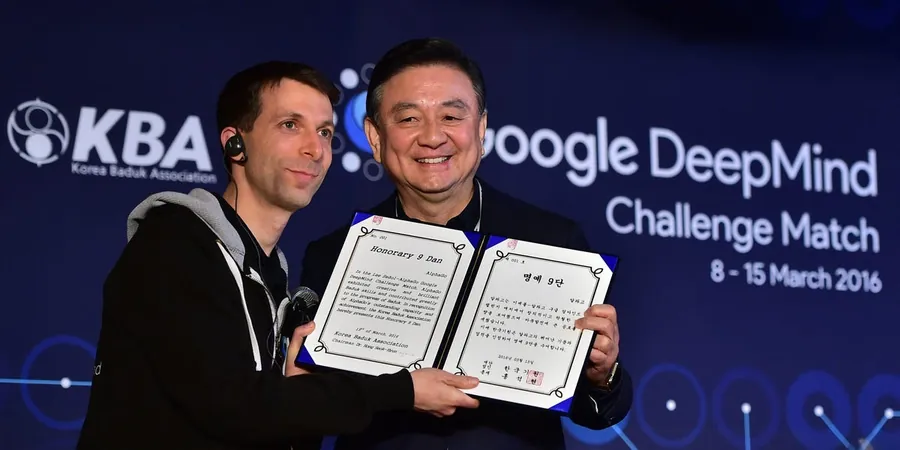
Google Ignites the Next Chapter in the AI Battle
2025-04-22
Author: Mei
A Bold New Era Emerges
In the crowded landscape of AI research, one paper has risen above the noise, sparking widespread conversation in the tech community. This groundbreaking work, hailed as "the most inspiring thing I've read in AI in the last two years" by startup founder Suhail Doshi, comes from Google researcher David Silver and Canadian computer scientist Rich Sutton. It announces a revolutionary phase in AI development.
The Evolution of AI: From Simulation to Experience
Silver and Sutton outline a compelling journey through the evolution of AI, categorizing it into two significant eras before introducing a third: the "Era of Experience." The first, dubbed the "Simulation Era," began in the mid-2010s and marked the rise of digital simulations where AI models learned through repeated gameplay in environments like chess and Go, resulting in breakthroughs like Google's AlphaGo.
Moving Beyond the Simulation Era
This initial era thrived on reinforcement learning, which allowed AI to excel in specific tasks. However, the authors argue that this method limited AI’s potential, confining it to problems with clearly defined goals. Enter the "Human Data Era," introduced by a 2017 landmark paper titled "Attention is All You Need." This phase saw AI trained on vast amounts of human-generated data, leading to advancements like OpenAI's ChatGPT.
A Missed Opportunity?
Despite laying the groundwork for the human data-based models that dominate today, Google has faced criticism for allowing rivals like OpenAI to seize the AI spotlight. Many experts believe Google has squandered its lead, even as Silver and Sutton subtly critique the limitations of the current paradigm, noting that it restricts AI's performance to existing human knowledge.
Introducing the Era of Experience
Silver and Sutton propose a radical shift with their "Era of Experience," suggesting that AI could create its own experiential data through real-world interactions. This innovative approach seeks to address the increasing scarcity of high-quality training data, pushing towards the ultimate goal of artificial general intelligence (AGI)—where machines outperform humans in vital tasks.
Revolutionizing Learning Through Real-World Engagement
Analogous to encouraging a child to play outside rather than being glued to a screen, this new paradigm urges AI to engage with the world directly. Such experiential learning could unlock capabilities unprecedented in the current landscape, effectively solving the data shortage while enhancing AI's independent learning.
Examples of a Groundbreaking Approach
The authors speculate on potential applications of this new approach. For instance, an AI health assistant could provide tailored recommendations based on individual health metrics, while an educational agent might use exam performance as a basis for personalized learning incentives. These examples illustrate how the Era of Experience could foster a more dynamic and responsive AI.
A Return to Self-Discovery
This innovative phase has the potential to return to the roots of AI learning—self-discovery. Unlike the limitations posed by the human data era, the Era of Experience encourages AI agents to generate their own knowledge and insights, breaking free from being mere reflections of existing human understanding.




 Brasil (PT)
Brasil (PT)
 Canada (EN)
Canada (EN)
 Chile (ES)
Chile (ES)
 Česko (CS)
Česko (CS)
 대한민국 (KO)
대한민국 (KO)
 España (ES)
España (ES)
 France (FR)
France (FR)
 Hong Kong (EN)
Hong Kong (EN)
 Italia (IT)
Italia (IT)
 日本 (JA)
日本 (JA)
 Magyarország (HU)
Magyarország (HU)
 Norge (NO)
Norge (NO)
 Polska (PL)
Polska (PL)
 Schweiz (DE)
Schweiz (DE)
 Singapore (EN)
Singapore (EN)
 Sverige (SV)
Sverige (SV)
 Suomi (FI)
Suomi (FI)
 Türkiye (TR)
Türkiye (TR)
 الإمارات العربية المتحدة (AR)
الإمارات العربية المتحدة (AR)